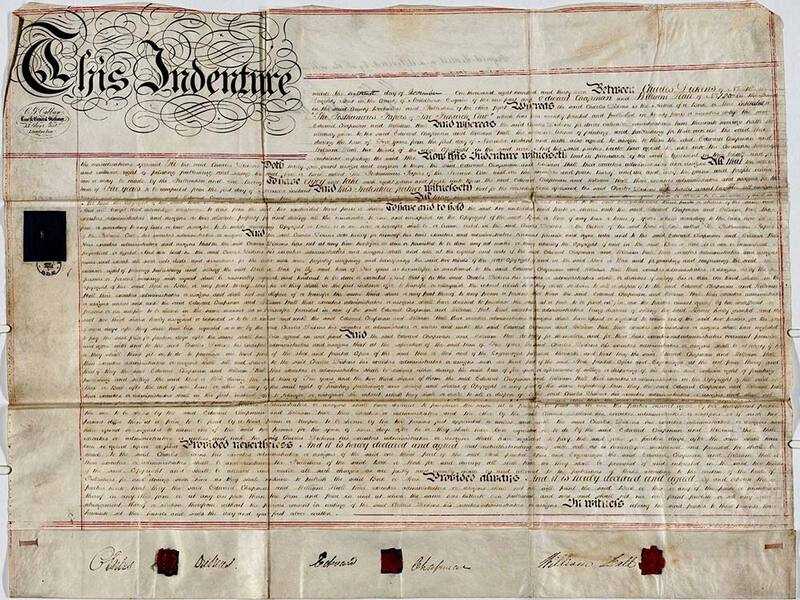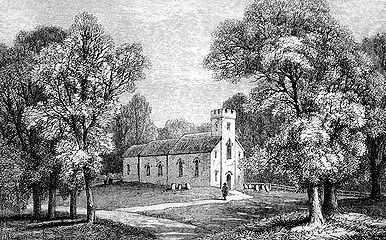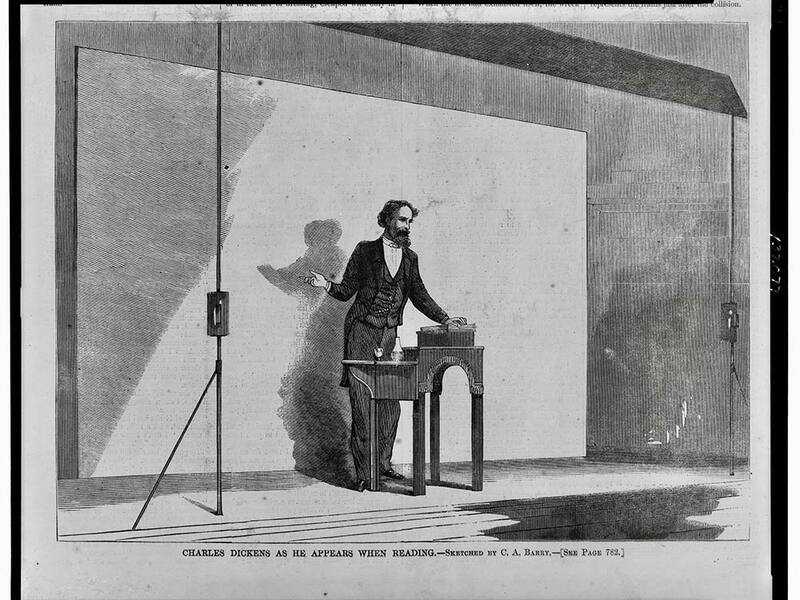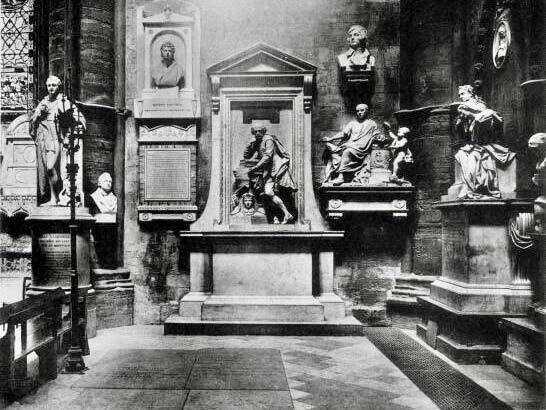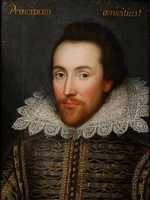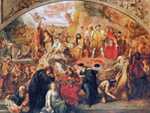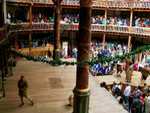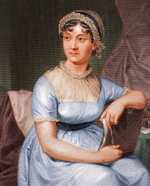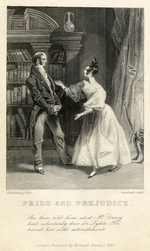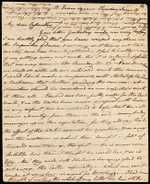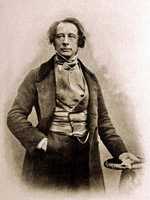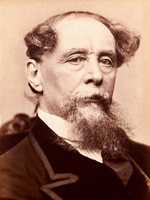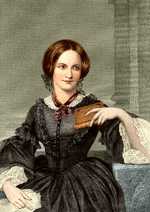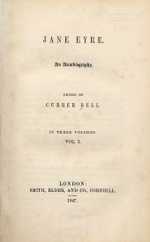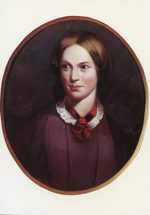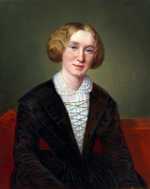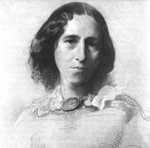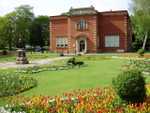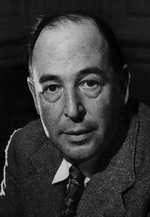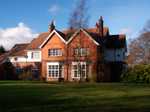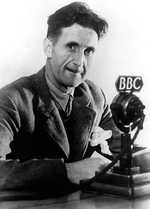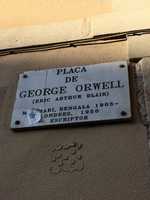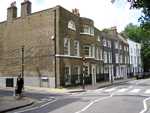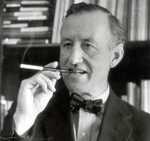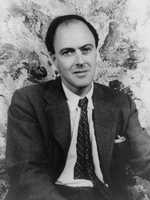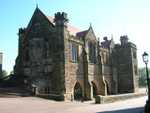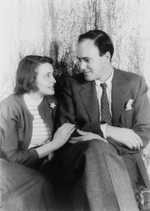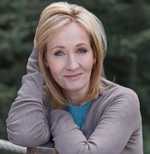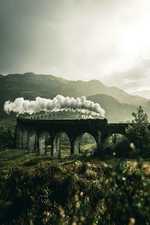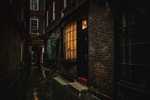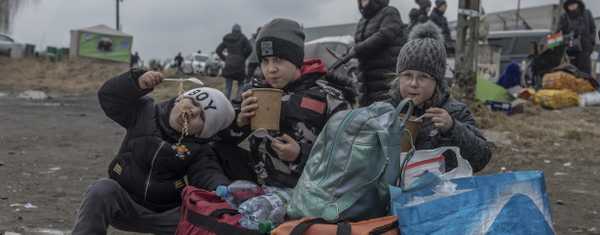1. William Shakespeare (1564-1616) – Stratford-upon-Avon
Shakespeare was a poet, playwright, and actor.
Shakespeare did not have an extensive formal education. He learned to read at age six and over time he learned Latin and Greek. He memorized key texts and learned to deliver speeches in Latin. He left school at age fifteen, married at eighteen, and had three children by the age of twenty-one.
Professional actors were a valuable commodity and playhouses were built to accommodate them. In 1585, Shakespeare traveled to London to pursue his dream. Shakespeare became an actor with the leading playing company in London, the Lord Chamberlain Men, later known as the King’s Men.
Shakespeare wrote comedies, tragedies, and historical plays. Among his popular works were Romeo and Juliet, Hamlet, Othello, King Lear, and Macbeth.
At one point, Shakespeare was regarded as England’s National Poet. Today, he is still celebrated as the greatest and most influential writer in the history of the English language.
2. Jane Austen (1775-1817) – Steventon, Hampshire
Austen was a novelist.
Other than a year spent at the Reading Abbey Girls’ School in 1785, where she was taught French, spelling, needle work, dancing, music, and drama, Austen was homeschooled. Between the ages of twelve and eighteen, she wrote short novels and juvenile stories.
For the first twenty-five years of her life, Austen lived in Steventon. When her father retired, he moved the family to Bath. Since she had no prospects for marriage, she was expected to follow her family. When her father died, her mother had limited resources. Her brother, Edward, found them a house in Chawton.
Austen’s novels focused on women and their dependence on marriage for economic security. She wrote four novels between 1811 and 1816. Her most popular were Sense and Sensibility and Pride and Prejudice. She signed them “By A Lady”, as custom demanded. Northanger Abbey and Persuasion were published posthumously in 1818.
Austen was the first author to give the ‘novel’ its distinctly modern character through her treatment of ordinary people in everyday life. Her work continues to influence the canon, but also cinema and popular culture.
3. Charles John Huffam Dickens (1812-1870) – Portsmouth
Dickens was a writer and social critic.
Dickens left school when he was twelve, because his father was sent to debtors’ prison. He took a job in a bootblacking factory to help with the family’s finances. After his father inherited a small sum of money, he was able to pay his debts and leave debtor’s prison.
Dickens’ father enrolled him in Wellington House Academy. For two years, he studied English, French, Latin, writing, and math. Then, at age fifteen, his father was sent to debtor’s prison a second time and he had to discontinue his education. He was able to get a job as a junior clerk in a law office and later as a freelance reporter for two major London newspapers.
Between 1836 and 1837, Dickens wrote The Pickwick Papers which pioneered the ‘serial’ method of publishing a novel in weekly or monthly installments. From 1837 until his death in 1870, Dickens wrote novels, novellas, short stories and non-fiction articles. Among his most popular were Oliver Twist, A Christmas Carol, and David Copperfield.
Dickens’ popularity can largely be attributed to the fact that he often gave lectures throughout the United Kingdom and abroad. He was believed by some to be a literary genius and the greatest novelist of the ‘Victorian’ era.
4. Charlotte Bronte (1816-1855) – Thornton
Charlotte Bronte was a novelist and poet.
Bronte was homeschooled until 1824. Then, she was sent to the Clergy Daughter’s School. The conditions at the school were deplorable and her father withdrew her in 1825. Later, from 1830 to 1832, she attended Roe Head School.
In the 1830s, Bronte had a series of positions as governess. Between 1842 and 1846, Bronte and her sisters attempted two unsuccessful projects: a boarding school and self-financing a collection of Bronte’s poems.
Bronte turned to prose fiction. As a woman, she feared her work would not be taken seriously and chose a pseudonym. She wrote The Professor and signed her name as Currer Bell. The novel was rejected. However, the publisher asked her to submit another more comprehensive piece. In 1847, Jane Eyre was published. It criticized society’s treatment of impoverished women. Its effect was immediate.
Bronte wrote Shirley, A Tale, a historical novel in 1849. In it, she explored the limitations of social justice. Its popularity led to ‘Shirley’ becoming a woman’s name. Before Bronte’s publication, ‘Shirley’ was a male’s name.
Between 1853 and 1854, Bronte wrote her final novel, Villette, and married Arthur Bell Nicholls. A year later, 1855, she died in childbirth. The Professor was published posthumously in 1857.
Bronte was the first to focus on the concept of a ‘protagonist’ and his/her moral and spiritual development through an intimate ‘first person’ narrative.
5. George Eliot (1819 – 1880) – Nuneaton, Warwickshire
George Eliot was the pen name of Mary Ann Evans Cross. She was a novelist, journalist, and translator.
Eliot’s father didn’t feel she possessed the physical beauty to attract a husband and invested heavily in her education. From the age of five until sixteen, she attended three schools.
In 1836, Eliot’s mother died. She left school and for the next fifteen years, she settled in with her father. Later, she met Charles and Cara Bray who hosted their Rosehill house for writers and intellectuals. The group were followers of the French philosopher, August Comte, and called themselves ‘Positivists’.
Ironically, ‘adultery’ was common in ‘Victorian’ society and, in 1850, Eliot began a relationship with George Henry Lewes, a married man, that spanned over twenty years.
In 1851, Eliot accepted a position as assistant editor for The Westminster Review. In 1856, she wrote The Sad Fortunes of the Reverend Amos Barton, the first of three stories in Scenes of Clerical Life, published in Blackwood’s Magazine. She used the pen name, George Eliot, fearing she would be stereotyped as a woman and limited to lighthearted romances.
Between 1859 and 1876, Eliot wrote seven novels. Middlemarch, written in 1871-72, was a political novel centered around the Reform Bill of 1832. It has been hailed as one of the greatest novels in the English language.
In 1878, Lewes died. In May of 1880, Eliot married John Walter Cross, twenty-one years her junior. In December of that same year, she became sick and died.
Eliot’s work is noted for its realism and psychological insight and continues to be used in university studies of nineteenth century English literature.
6. C. S. Lewis (1898-1963) – Belfast, Ireland
Clive Staples Lewis was a writer, academician, and lay theologian.
Lewis was born into a Protestant family that purchased and read “endless” books. His mother died when he was ten. He was devastated and became an avowed atheist.
In 1916, Lewis received a scholarship to Oxford. He left in 1917 to serve in World War I. When he returned, he resumed his studies, graduated with honors, and was awarded a teaching position at University College.
Lewis accepted a position as Fellow and Tutor at Magdalen College in 1925. He joined a group called the Inklings, composed of writers and intellectuals, who embraced Christianity. Encouraged, he joined the Church of England in 1929.
Lewis wrote Christian, science fiction, and children’s books. Notable among them were The Screwtape Letters and The Chronicles of Narnia which became a landmark film series.
In 1954, Lewis joined the faculty at Cambridge University. In 1956, he married Joy Gresham, an American. She died in 1960 of cancer. He was grief stricken and wrote A Grief Observed under the pseudonym, N. W. Clerk. His friends recommended the book to him to read for comfort, not knowing he was the author.
Lewis is regarded as one of the greatest Christian writers of the twentieth century. His books are judged to be the most useful ever written for explaining the value of Christian faith to a skeptical world.
7. George Orwell (1903-1950) – Motihari, Bihar, British India
George Orwell was the pen name of Eric Arthur Blair. He was a novelist, journalist, and critic.
Orwell’s father worked as a civil servant in the Opium Department of the Indian Civil Service. At the age of one, his mother brought him and his older sister to England. Orwell went to Wellington and Eton. In lieu of college, Orwell enrolled at Craighurst, a specialized school, and passed the exam to join the Indian Police Service. In 1924, he was assigned to Burma.
After returning to England, Orwell decided to become a writer, much to the chagrin of his father. Undeterred, Orwell moved to the London and Paris slum districts to do research. He exchanged his good suit for an outfit of rags and collected notes for a prospective novel.
Orwell returned to London in 1929 and took on a series of jobs while he continued to write. In 1933, Down and Out in Paris and London, his first nonfiction piece, was published. So as not to embarrass his family, he took George Orwell as his pen name.
Orwell’s first novel, Burmese Days, was published in 1934, followed by The Clergyman’s Daughter in 1935.
In 1936, Orwell married Eileen O’Shaughnessy. Later, they adopted a three-month-old son. He continued to work as an investigative journalist and wrote about the economically depressed area in northern England. This resulted in the publication of The Road to Wigan Pier in 1937.
In 1938, Orwell went to Spain to fight Fascism. He became disillusioned by the conflicting ideologies and returned home. Homage to Catalonia was published in 1938 which described his experiences.
In 1939, during World War II, Orwell wanted to serve, but he was found to be medically unfit. Later, he was hired by the British Broadcasting Corporation (BBC) to help develop programs to counter the propaganda of Nazi Germany.
Orwell completed Animal Farm in 1945. It was an allegorical novella about farm animals who rebelled against their human farmer. In that same year, his wife died. Orwell started George Orwell Productions in 1946. Although Animal Farm was a success, Orwell continued his journalistic work and established himself as a major socialist writer. In 1949, he wrote Nineteen Eighty-Four, a dystopian social science novel that discussed issues like the consequences of totalitarianism. In that same year, he married Sonia Brownell.
Orwell’s Animal Farm and Nineteen Eight-Four made a major contribution to political and cultural life. He is respected as a superb journalist, particularly for his knack of ‘embedding’ himself in an assignment to get at the truth.
Orwell left his mark on the English language, coining phrases such as ‘Big Brother’ and ‘Double Think’.
8. Ian Lancaster Fleming (1908-1964) – London
Fleming was a suspense-fiction writer, journalist, and a naval intelligence officer.
Fleming finished Eton College in 1927 and entered Royal Military College for a brief period. Later, at Tennerhof, a private school in Austria, he improved his language skills. Also, he spent a brief time at Munich University and the University of Geneva.
In 1931, Fleming worked as a sub-editor and journalist for the Reuters News Agency. He went to Moscow in 1933 and covered a ‘show trial’ of six British engineers. Later, he tried his hand as a banker and a stockbroker,
In 1939, during World War II, Fleming was recruited by the British Naval Intelligence Service. He was involved in the planning and oversight of several intelligence units. Fleming accepted a position as Foreign Manager, in 1945, with the Kemsley Newspaper Group which owned The Sunday Times. He fell in love with Jamaica and had a house built which he called ‘Goldeneye’. It was there that he began to write his suspense novels.
Fleming completed his first novel, Casino Royale, in 1952. The protagonist was James Bond, a British secret service agent, 007. It became an immediate success. Between 1953 and 1966, he wrote eleven Bond novels. Popular favorites were Live and Let Die and From Russia With Love.
Fleming’s ‘007’ has been portrayed by seven actors. The films have grossed over a billion dollars. Two Bond novels, The Man with the Golden Gun and Octopussy and the Living Daylights, and a children’s book, Chitty-Chitty-Bang-Bang were published posthumously.
Since 1968, other writers have been contracted to produce ‘Bond’ novels.
9. Roald Dahl (1916-1990) – Llandoff, Wales
Dahl was a novelist, short-story writer, screenwriter, and wartime fighter pilot.
As a young boy, Dahl was a mischief maker and attended several schools. When he was thirteen, he enrolled at Repton and remained there until 1934.
Dahl refused an offer to go to Oxford or Cambridge. He opted for a job with Shell Petroleum Company where he supplied oil to customers across Tanganyika (now Tanzania).
In 1939, during World War II, he joined the Royal Air Force (RAF) and became a fighter pilot. After a serious plane crash, he was sent to Washington, D.C. as an Assistant Air Attache at the British Embassy.
Dahl wrote his first children’s book, The Gremlins, for Walt Disney Films in 1943. The project was abandoned. By the 1960s, he had established himself as a children’s writer. Most notable among his film scripts were Chitty-Chitty-Bang-Bang and You Only Live Twice, adapted from the work of Ian Fleming.
Dahl’s children’s books were oftentimes macabre. Among his most popular were James and the Great Peach and Charlie and the Chocolate Factory.
Dahl became the world’s best loved children’s author. In 1990, he was awarded the British Book Awards’ Children’s Author of the Year.
10. J. K. Rowling (1965-) – Yate, Gloucestershire
J. K. Rowling is the pen name for Joanne Rowling. The middle initial was adopted from her grandmother, Kathleen. She is an author and screenwriter.
Rowling attended Wyedean School and College where she excelled in English, French, and German. After a year studying in Paris, she earned her BA in French and Classics at the University of Exeter in 1986.
The idea for Harry Potter came to Rowling in 1990 while on a delayed train from Manchester to London. In 1997, Rowling’s first novel, Harry Potter and the Philosopher’s Stone was published. Six sequels followed. The series featured a young wizard, Harry Potter, and his friends at the Hogwarts School of Witchcraft and Wizardry. It became the best-selling book series in history.
In 2011, Rowling wrote The Casual Vacancy, an adult novel that was made into a television miniseries. For her mystery series, featuring Cormoran Strike, a private investigator, she uses a pen name, Robert Galbraith.
Rowling has received numerous honors and awards in Britain and abroad. Today, Rowling is regarded as the best-selling ‘living’ artist in Britain.
11. Conclusion
Roger Ascham, English scholar, believed that speech was the greatest gift to man from God and to speak or write poorly was shameful. Without a doubt, it’s reasonable to conclude that “Wordsmiths” aptly describes the writers featured in this article.
